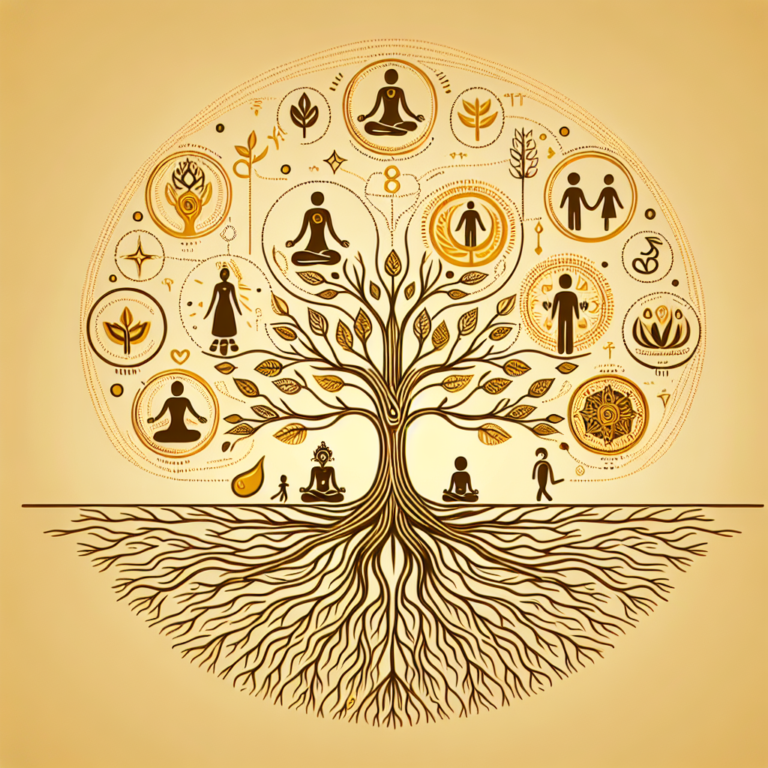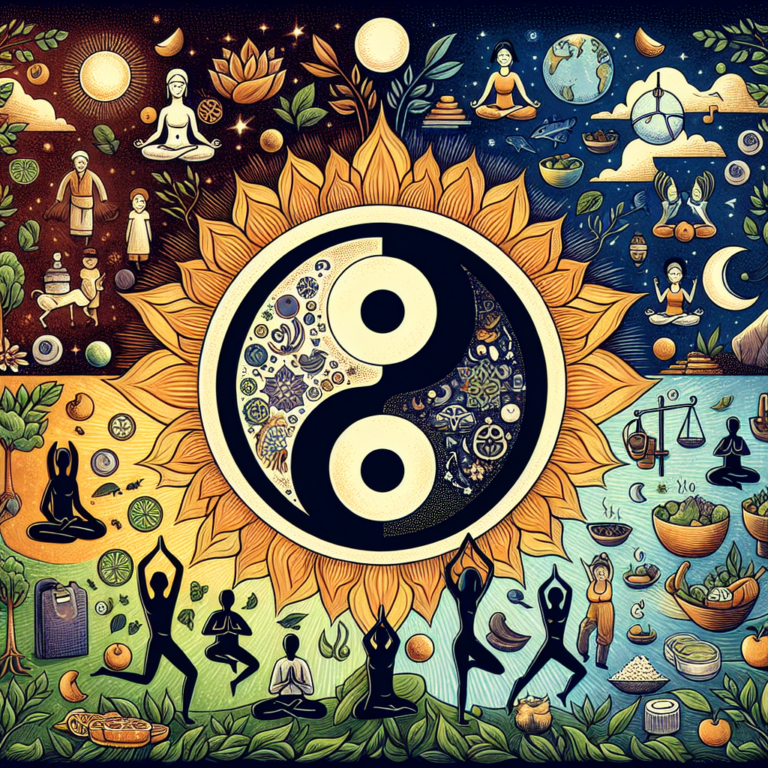Karma is an ancient concept rooted in eastern philosophies, particularly in Hinduism and Buddhism. At its core, the idea of karma suggests that our actions—whether positive, negative, or neutral—have consequences that shape our future experiences. It transcends mere cause and effect, encompassing moral and ethical dimensions that influence the broader tapestry of existence. As we delve into the intricacies of karma, we’ll explore how our actions impact not only our immediate realities but also the trajectories of our lives.
What is Karma?
The term "karma" comes from the Sanskrit word "karman," which means "action" or "deed." The essence of karma is encapsulated in the notion of reciprocity; that is, our actions initiate a chain reaction in the universe, engaging us in a perpetual cycle of cause and effect. This cycle is often illustrated through the metaphor of a boomerang: what you give out into the world will eventually return to you.
The Types of Karma
Karma can be broadly categorized into three types:
Sanchita Karma: This refers to the accumulated karma from past actions that have not yet manifested in this life. It is like a storehouse of potential experiences that shape our current existence.
Prarabdha Karma: This type of karma represents the part of Sanchita Karma that has reached maturation and is presently influencing our life. It comprises the circumstances and situations we encounter daily.
- Kriyamana Karma: These are the actions we take in the present moment. Every intention, thought, and action we manifest creates an immediate impact on our future.
Understanding these types indicates that while we are influenced by past actions, we also possess the power to shape our destinies through our present choices.
The Law of Karma: How It Works
The Law of Karma operates on a simple premise: every action has a corresponding reaction. This law is intricately connected to the idea of moral responsibility. Ethical behavior is encouraged, as the belief is that positive actions cultivate favorable outcomes, whereas negative actions yield adverse consequences.
Critically, karma isn’t merely a direct punishment or reward system. It’s a nuanced process influenced by several factors, including:
Intent: The motivation behind an action is paramount. A kind act performed with deep sincerity is viewed more favorably than a similar act executed out of obligation or for ulterior motives.
Context: The circumstances surrounding an action can affect its karmic repercussions. For instance, an intention to help may lead to unintended negative consequences, which karma evaluates holistically.
- Growth and Learning: Sometimes, karmic experiences serve as lessons designed to facilitate growth. Adverse situations may arise not as punishment but as opportunities for introspection and personal development.
The Ripple Effect of Actions
The actions we undertake send waves through the fabric of our environment. A simple act of compassion, such as helping a stranger or lending an ear to a friend in need, fosters a sense of connection and positivity. This can lead to a chain of events where others are inspired to act similarly, creating a collective environment of goodwill.
Conversely, negative actions—such as deceit or aggression—tend to propagate discord and resentment. Engaging in harmful behavior can forge a path laden with distress, impacting not just the offender but also those in their proximity.
This ripple effect highlights the interconnectedness of all beings. No action exists in isolation; our choices can either uplift or diminish the collective spirit of those around us.
The Role of Free Will in Karma
A frequent debate surrounding karma is its relationship with free will. If karma dictates our experiences based on past actions, do we truly have control over our lives? In reality, karma does not negate the concept of free will; rather, it complements it. Just as past actions create frameworks for our present life, our current decisions actively shape our future karma.
Every moment presents us with an opportunity to choose how we respond to situations. The potential for growth, change, and transformation remains ever-present. Thus, while we may face the consequences of past deeds, our free will allows us to carve a new path moving forward.
Karma and Personal Responsibility
An essential aspect of understanding karma is embracing personal responsibility. Recognizing that our actions bear weight prompts a shift in how we engage with the world. Living consciously, with awareness of the potential consequences of our choices, fosters a sense of integrity.
Taking responsibility also cultivates a proactive approach to life. Instead of viewing ourselves as victims of circumstances beyond our control, we embrace an empowerment perspective, identifying how our actions today can create a more favorable future.
The Transformative Power of Karma
When we grasp the concept of karma fully, it becomes a transformative force in our lives. The acknowledgment that our actions matter inspires a commitment to embodying kindness, compassion, and integrity. The more we practice mindfulness in our actions, the more profound the impact on our lives and the lives of others.
By focusing on positive actions, we can alter our trajectory, creating a feedback loop of positivity and growth. In this way, karma serves not only as a moral compass but also as a guide for personal evolution and community building.
Conclusion
Karma is a compelling concept that elucidates the intricate web of interconnectedness in our actions and their outcomes. Recognizing the significance of our choices empowers us to live with intention and purpose. By understanding that our actions shape our future, we can actively cultivate the life experiences we desire.
As we navigate through life, let us remain mindful of the principle of karma, remembering that even the smallest actions can yield profound effects. Each moment offers an opportunity to contribute positively to the world around us, crafting a legacy of goodness that paves the way for a brighter future.
FAQs
1. What is the origin of the concept of karma?
Karma has its roots in ancient Indian philosophy, particularly within Hinduism and Buddhism. It has evolved over centuries as part of spiritual teachings that emphasize moral responsibility and ethical living.
2. Can bad karma be changed?
Yes, while past actions influence our current circumstances, we have the power to alter our future karma through present choices. Engaging in positive actions can help offset negative karma.
3. How can I create good karma?
Creating good karma involves being intentional in your actions, fostering compassion and kindness, engaging in selfless deeds, and cultivating positive relationships with those around you.
4. Is karma a system of punishment?
Karma is not solely a system of punishment or reward; it is a complex principle of moral cause and effect. It aims to reflect the lessons necessary for growth and development rather than serve as a punitive measure.
5. How does karma affect relationships?
Karma plays a significant role in relationships, as our actions towards others can foster trust, understanding, and love or lead to conflict and resentment. The energy we invest in our relationships can dictate their quality over time.
It seems you may not have provided the complete details. Could you please clarify or provide more context for the prompt you’re interested in? Whether it’s a topic, a question, or something specific you’re looking to explore or discuss, I’m here to help!, #Karma #Explained #Actions #Shape #Future, #Karma #Explained #Actions #Shape #Future, 1736650533, karma-explained-how-your-actions-shape-your-future





